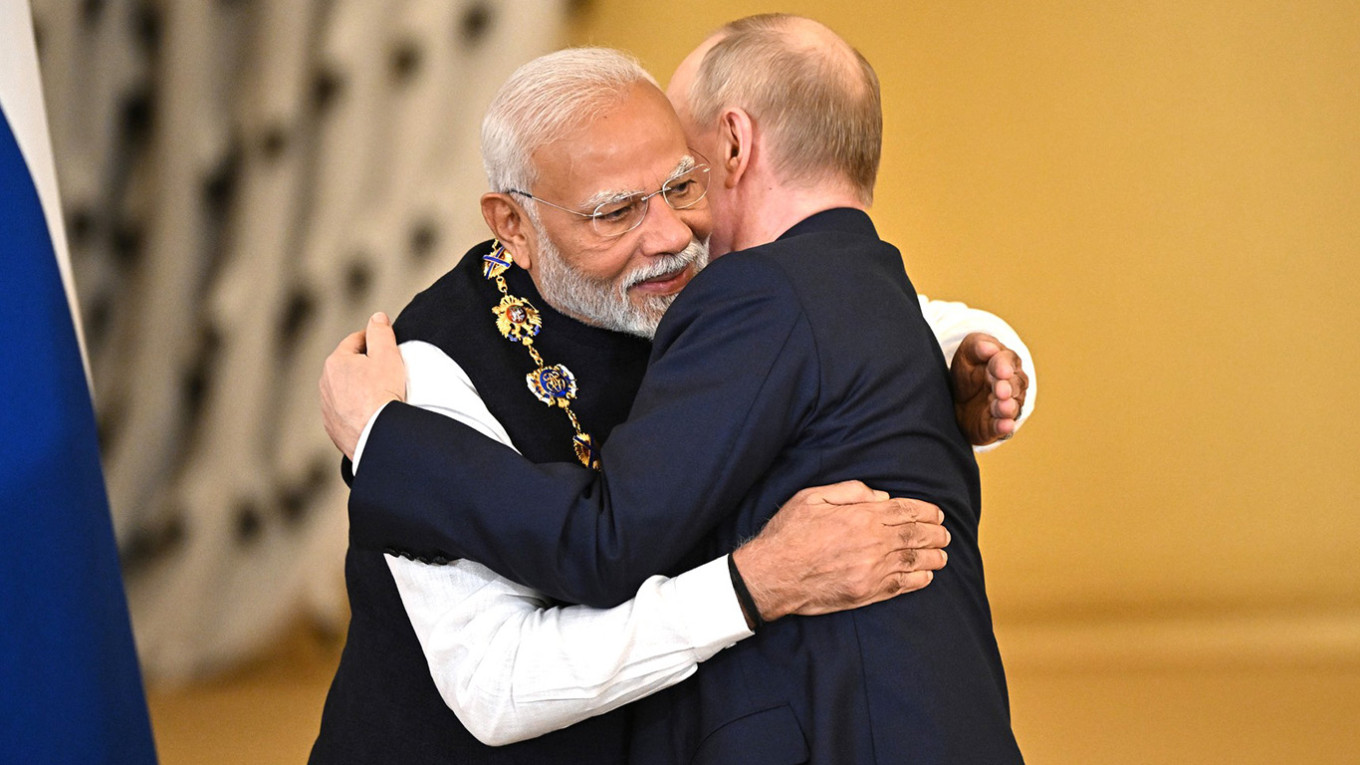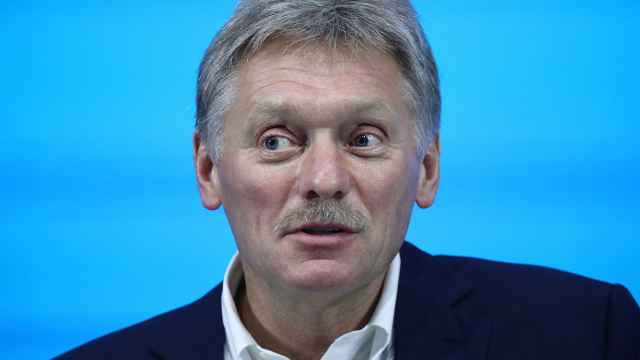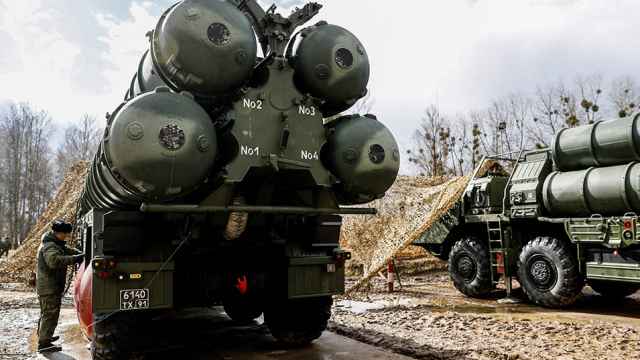India and Pakistan exchanged heavy fire overnight, marking their worst confrontation since 2019 and raising fears of an all-out war between the two nuclear-armed countries.
India fired missiles at Pakistan early Wednesday, calling it retaliation for last month’s attack in which gunmen killed 26 people, mostly tourists, in India-controlled Kashmir. Pakistan said the strikes amounted to an act of war and launched a retaliatory attack.
The Russian Foreign Ministry said Wednesday that it was “deeply concerned” about the situation and urged both countries to “show restraint.
Russia has also offered to mediate the crisis, with Foreign Minister Sergei Lavrov having held calls with both sides last week.
Amid the tensions, The Moscow Times examines Russia’s relationship with both countries:
Russia-India relationship
In December 2023, India’s External Affairs Minister Subrahmanyam Jaishankar called the India-Russia relationship the “one constant in world politics,” emphasizing the two countries’ ties to each other.
Russian support for India goes as far back as the 1950s, when the Soviet Union used its UN Security Council veto in support of India on the issue of Kashmir.
Since then, the U.S.S.R. and later Russia have played a mediating role between India and Pakistan, and the U.S.S.R. supported India throughout the Cold War.
However, while British foreign affairs think tank Chatham House says the relationship between the two countries is currently undergoing a “managed decline,” Moscow and New Delhi remain important partners in several areas.
Trade between the two countries rose to $66 billion in 2024, with an eye on reaching $100 billion by 2030.
Indian Prime Minister Narendra Modi has visited Russia twice in the past year, and he has met with Vladimir Putin 17 times in the last decade.
Russian oil, which accounted for just 2% of India’s total imports before Moscow’s invasion of Ukraine, has ballooned to over 40% as of June 2024. In December, the two countries penned a 10-year, $13 billion deal to supply 500,000 barrels of crude oil per day to Indian private refiner Reliance.
The two countries also cooperate on nuclear energy. Russia’s state nuclear power provider Rosatom has an agreement in place to build six nuclear power reactors in India.
Russia and India are also deeply involved when it comes to defense. Chatham House notes that Russia accounts for over 50% of India’s military equipment and that India is the largest importer of Russian arms worldwide.
Still, India has attempted to walk a diplomatic tightrope when it comes to Russia’s war on Ukraine, neither condemning nor voicing support for the invasion. It has also abstained numerous times on UN resolutions condemning Moscow’s actions, and the country is the second-largest supplier of restricted critical technologies to Russia.
Russia-Pakistan relationship
The Russia-Pakistan relationship has deepened in recent years after Pakistan’s pro-Western orientation during the Cold War.
Bilateral trade reached $1 billion in 2023, the highest-ever level between the two countries, and Russian Deputy Prime Minister Alexei Overchuk said in 2024 that Russia would support Pakistan’s inclusion in the BRICS economic bloc.
“Pakistan-Russia relations since [2011] have been moving on an upward trajectory, however slowly,” Muhammad Murad, a Ph.D. political science candidate at the University of Bonn, wrote in The Diplomat.
In 2017, Islamabad joined the Moscow- and Beijing-led Shanghai Cooperation Organization in an effort to deepen its regional cooperation.
Four years later, Russia and Pakistan signed an agreement to construct a gas pipeline from Karachi to Lahore.
“Despite the growing ties between Islamabad and Moscow, there is still a certain level of existing mistrust between the two countries owing to Pakistan’s neutral stance on the Russia-Ukraine war and its alleged supply of weapons to Ukraine,” says Murad.
Pakistan allegedly sold $364 million in arms to Ukraine and Israel to cover the funding gap required to finance an International Monetary Fund (IMF) loan. The county’s government has denied that the sale took place.
While Pakistan has abstained three times from voting for UN resolutions that would condemn Russia’s conduct in Ukraine, it has called for Ukraine’s sovereignty to be respected.
Prashant Singh, a Delhi-based researcher, views Russia-Pakistan relations from another angle.
“There is one constant: Pakistan-Russia relations have always acted as a subset of the regional geopolitical pentagon composed of Russia, the United States, China, India and Pakistan,” he wrote in The Diplomat.
He noted that cooperation between the two countries is traditionally limited to energy, food security and counterterrorism, because arms sales would anger India.
And even as it grows closer to Moscow, Pakistan also depends on Western-backed institutions like the IMF for financing. As recently as March, Pakistan received the go-ahead to secure $1.3 billion in funding as part of an ongoing 37-month program that it said helped the country stave off the threat of default.
A Message from The Moscow Times:
Dear readers,
We are facing unprecedented challenges. Russia's Prosecutor General's Office has designated The Moscow Times as an "undesirable" organization, criminalizing our work and putting our staff at risk of prosecution. This follows our earlier unjust labeling as a "foreign agent."
These actions are direct attempts to silence independent journalism in Russia. The authorities claim our work "discredits the decisions of the Russian leadership." We see things differently: we strive to provide accurate, unbiased reporting on Russia.
We, the journalists of The Moscow Times, refuse to be silenced. But to continue our work, we need your help.
Your support, no matter how small, makes a world of difference. If you can, please support us monthly starting from just $2. It's quick to set up, and every contribution makes a significant impact.
By supporting The Moscow Times, you're defending open, independent journalism in the face of repression. Thank you for standing with us.
Remind me later.






